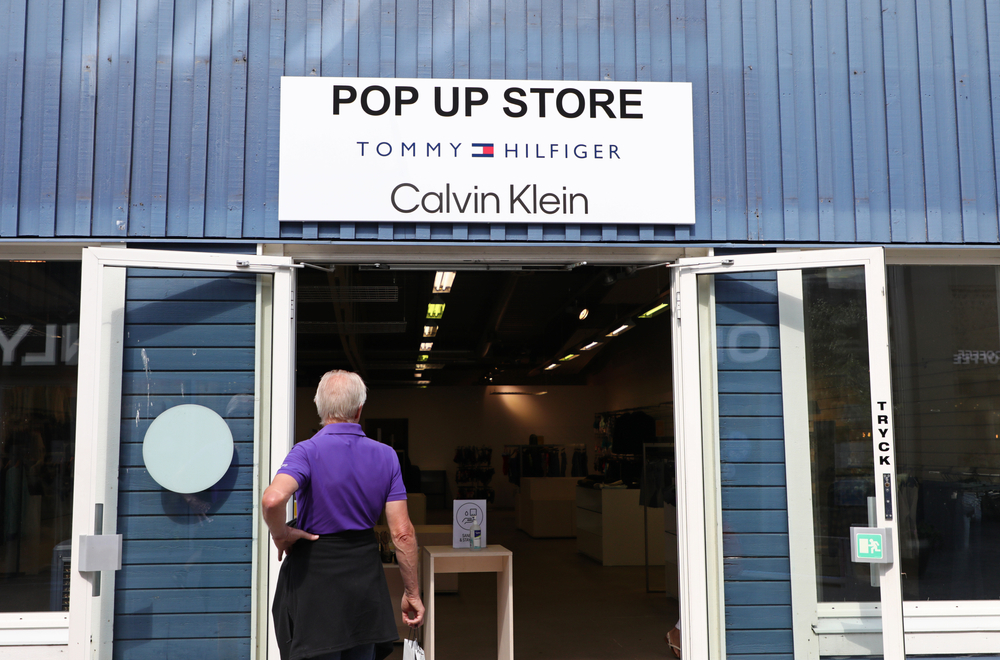The ongoing trade war between the United States and China has taken a new turn, with PVH Corp., the parent company of Calvin Klein and Tommy Hilfiger, caught in the crossfire. China has officially blacklisted PVH, restricting its operations and threatening its manufacturing base. The decision underscores the growing tensions between the two economic giants and highlights American companies’ risks in the Chinese market.
China Blacklists PVH Corp.
China’s Ministry of Commerce announced that PVH Corp. was placed on the country’s “unreliable entities” list. This designation grants the government broad authority to penalize the company, including prohibiting imports and exports, revoking work permits, and restricting employee travel. The move follows an investigation into PVH’s alleged refusal to source cotton from the Xinjiang region, a contentious issue due to human rights concerns.
“This tit-for-tat trade war is escalating, and China wants to show the United States that it can take action against major American corporations,” said Michael Kaye, an international trade expert with over 30 years of experience. “They wanted to pick someone high-profile, and PVH became that example.”
Potential Business Fallout for PVH
The blacklist status could have devastating consequences for PVH’s operations in China. The company may be forced to shut down its regional stores, cease online sales, and relocate manufacturing.
Kaye warned that PVH employees in China could also face deportation, adding another layer of uncertainty for the company. “China’s enforcement of the blacklist remains unclear, but PVH’s business is at serious risk,” he explained.
Hong Kong, where PVH’s Asia-Pacific headquarters is based, presents another challenge. Although it operates under a different legal framework, Beijing has expanded its control over the city in recent years, meaning the blacklist restrictions could extend there as well.
The Manufacturing Dilemma
While China accounts for only 6% of PVH’s sales, it contributes a significant 16% of the company’s earnings before interest and taxes. More importantly, China serves as a crucial manufacturing hub for PVH, producing about 18% of its global output.
“This could be incredibly disruptive for PVH,” said Neil Saunders, a retail analyst at GlobalData. “They will have to scramble to find new manufacturing capacity, and that transition won’t be easy.”
Saunders emphasized that the quality of PVH’s products could suffer if manufacturing shifts elsewhere. “China has developed skilled workers and efficient production systems over decades. Moving to another country means investing time and resources to ensure the same level of craftsmanship.”
PVH’s Response and Future Uncertainty
In response to the news, PVH expressed disappointment, stating:
“In our 20 years of operating in China and proudly serving our consumers, PVH maintains strict compliance with all relevant laws and regulations and operates in line with established industry standards. We will continue our engagement with relevant authorities and look forward to a positive resolution.”
However, experts believe China is unlikely to back down. The Chinese government has clarified that PVH is being used as a bargaining chip in ongoing trade negotiations with the U.S.
“There’s a sword of Damocles hanging over PVH’s head,” Saunders noted. “This isn’t about PVH—it’s about the broader conflict between China and the U.S. China is sending a message that if trade restrictions continue, it can make life difficult for American companies like Nike, Apple, General Motors, and Starbucks.”
The Bigger Picture
The placement of PVH on China’s blacklist highlights the unpredictability of global trade tensions. With China wielding its economic power to retaliate against U.S. tariffs, American businesses in the region face an uncertain future. Whether PVH can navigate these challenges and maintain its presence in China remains to be seen.


